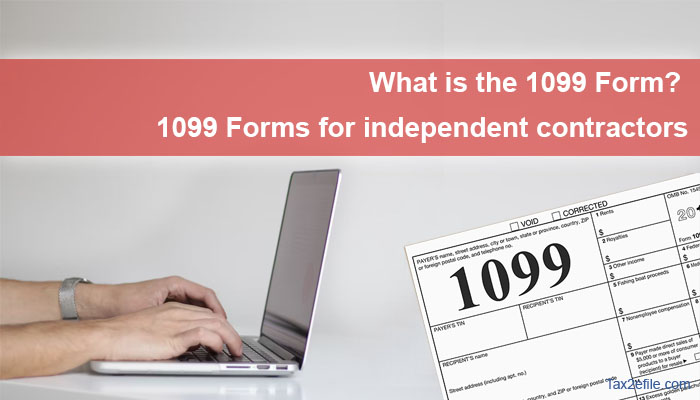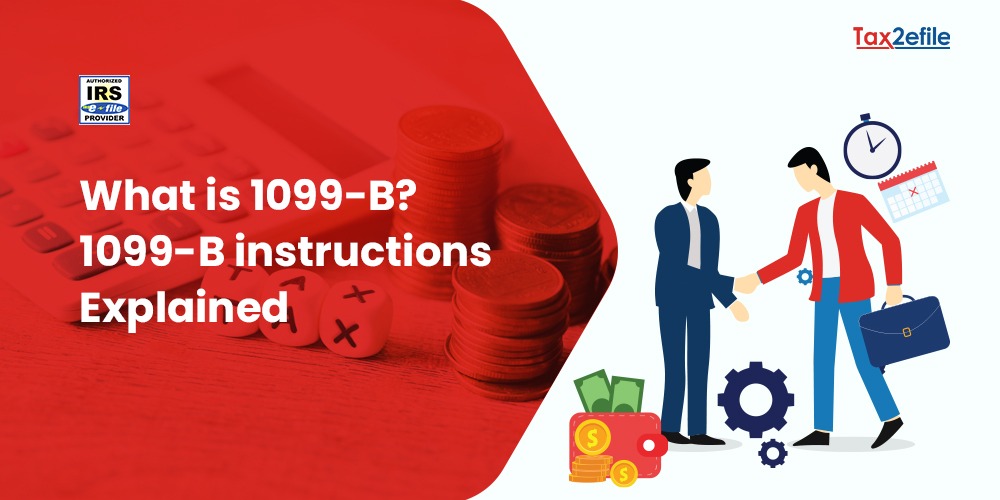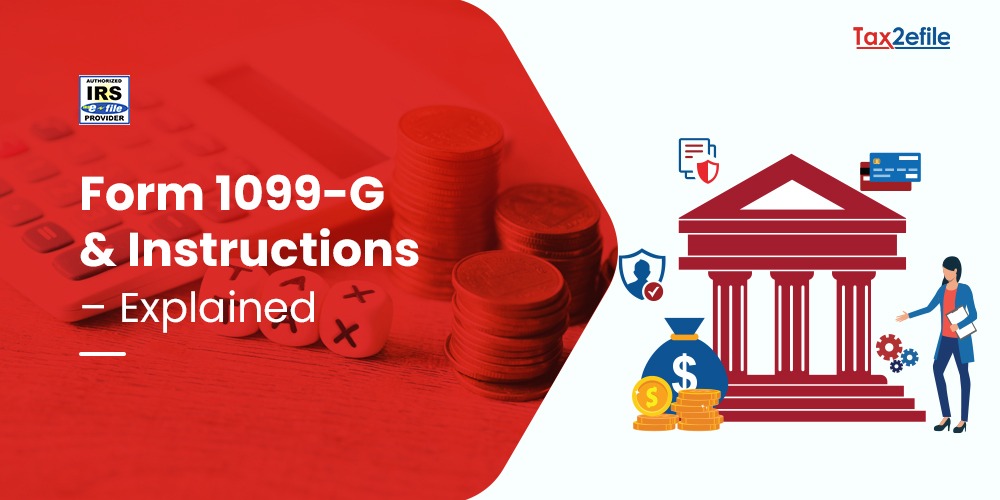- May 24, 2023

Understand the 1099 Forms for independent contractors
Independent contractors use the IRS 1099 tax Form to report their non-employment income to the IRS. If you received non-employment income, such as interest from a bank account, payment for freelance work, or dividends from a brokerage account, you must report this income to the IRS using the 1099 Forms. There are different versions of the 1099 Form that taxpayers use to report different non-employment income with the IRS.
Table of Contents
Consideration 1099 Forms for Independent Contractors Taxpayers:
As independent contractors, there are things that should follow regarding the 1099 form,
- Normally if independent contractors earn 600$ or more from payers within the tax year, they are required to report a 1099 form. However, if you earn less than 600$, you still have a responsibility to report your income to IRS
- Ensure your name, address, and other mandatory details are filled correctly to avoid rejection while filing 1099 forms
- As an independent contractor, you are responsible for paying both the employer and employee portions of Social Security and Medicare taxes.
Importance of 1099 tax Forms:
The 1099 Tax Forms play a vital role in tracking income that typically doesn’t appear in an individual’s salary or Form W-2. If the IRS discovers that income reported on the 1099 Forms differs from what is reported on the 1040 Forms, taxpayers may be required to pay additional taxes. The IRS uses Tax Form 1099 to report specific types of non-employment income. The deadline to mail the 1099 Forms to the taxpayers is 31st January. Even if the taxpayer doesn’t receive Form 1099, they are still responsible for paying the taxes owed.
Types of 1099 Forms:
Businesses generally issue 1099 Forms to the payee who has received at least $600 as non-employment compensation during the tax year. There are certain exceptions to the $600 threshold. For example 1099- INT is issued by the financial service provider if the customer earns $10 or more as interest income. There are more than 20 varieties of 1099 Forms as of 2022. The most popular among them are as follows.
- 1099- INT: This tax form is sent to the taxpayers if they have earned more than $10 as interest during the tax year. This Form is generally issued by banks, investment firms, and brokerage firms.
- 1099-DIV: This Tax Form is sent to taxpayers who have earned dividend income. Dividends are generally made as cash payments to the investors by corporations, as a reward for owning their equity shares.
- 1099-G: This tax form is sent to those who get money from the local, state, or Federal Government. For example, those who receive unemployment benefits will get this Form.
- 1099-R: This tax Form is issued if the taxpayer receives a payout from a retirement plan, plan, or IRA. Some life insurance contracts and annuities may also issue 1099-R.
- 1099-B: Taxpayers who have performed transactions, such as the sale of stocks, securities, and other commodities will get Form 1099-B.
- 1099-S: This tax Form is issued for taxpayers for performing real estate transactions. If you have gained proceeds from the sale of land or commercial building, you will get this Form.
- 1099- NEC: Businesses will report non-employee compensation that they have paid to their freelancers and contractors on this Form.
- 1099- MISC: This Form typically records income that does not fall under the rest of the 1099 consortium. For example, money received from rewards and prizes will be recorded here.
Tax2efile for 1099 Form Independent Contractors
Tax Payers should ensure that they receive all of their 1099 Forms on time, to file their returns with the IRS. If they have not received the Form, they can contact their employer or payer for the same. Tax Payers can take help from experts at Tax2efile to file their returns with the IRS on time, and to avoid fines and penalties.


